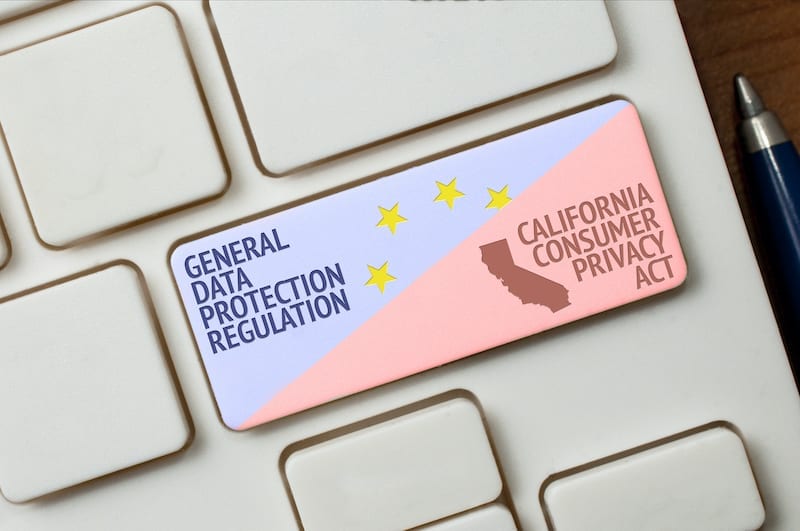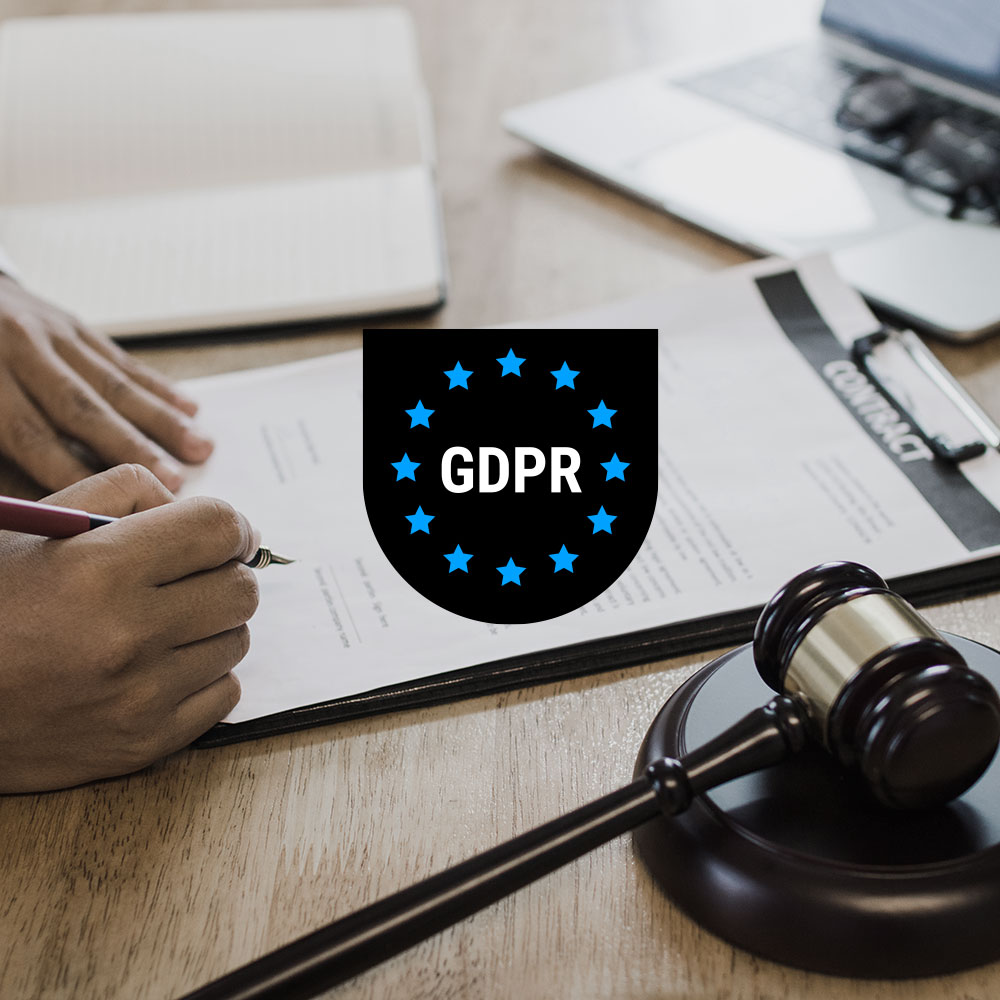
Who does CCPA affect?
The company must do business- in California
- have a total turnover of over 25 million US dollars (before taxes)
- collect more than 50,000 data records from California residents per year
- generate half of its turnover from the sale of users’ personal data
Who does CCPA protect?
Only Californian citizens or households fall under the protection of the CCPA. Unlike the GDPR regulations, which apply across national borders. Important to know: There is no standardized data protection law in the United States – as for instance in the EU. Any data protection laws that do exist refer to specific areas (such as the health sector) or – like the CCPA – to individual states.Does GDPR or CCPA apply?
Both the GDPR and the CCPA are extraterritorial laws. Therefore, they also apply outside the territory of the country or state in which they were introduced. Companies that do business in one of these European member states or in the American state of California and process user data must comply with rules and regulations. To be clear: if a European citizen visits a US California website, the GDPR regulatory framework will apply. If a Californian citizen surfs a website of a company in the EU, both the CCPA and the GDPR apply to this website user. However, this is only the case if it can be argued that the respective offer is also directed at users outside the home market. Important: In the event of uncertainty, one should orient oneself to the stricter law, i.e. the GDPR regulations, and enforce it for all visitors.What is the difference between GDPR and CCPA?
The CCPA is in essence merely a consumer protection regulation, whereas the GDPR regulates the subject of data protection more comprehensively. For example, the GDPR regulations also apply to the B2B sector. Overall, CCPA is considerably more unspecific. Concrete regulations such as the obligation to appoint a data protection officer as stipulated in the GDPR are not provided for in the CCPA regulatory framework. The biggest difference between the CCPA and the GDPR is the use of personal data: In order to be allowed to collect user data and subsequently pass it on in accordance with the GDPR, the website operator must have collected the user’s prior explicit consent (opt-in). The CCPA, on the other hand, is based on the opt-out principle. To be CCPA-compliant, a company’s website must contain a clearly visible link with the wording “Do not sell my personal information” so that the user can actively object to the disclosure and sale of personal information. Explicit consent must be obtained for the transfer of data for children between the ages of 13 and 16. In the case of children under 12 years of age, consent of their legal guardians must also be obtained. Since it cannot be ruled out that some websites may also have visitors under the age of 16, one should play it safe and obtain an opt-in for everyone, which is again in line with the GDPR regulatory approach. The GDPR handles child protection with a little more rigour: the processing of personal data is generally only permitted here from the age of 16 onwards. If the child is younger, the consent of a parent or guardian must be obtained. However, GDPR contains an opening clause whereby Member States may also reduce the age limit to 13 years. Germany, however, does not make use of this provision; Austria, for example, does. This is a theme that companies operating throughout the EU must keep in mind.How does the CCPA regulate the use of cookies?
First party cookies, which collect personal data, e.g. regarding user behaviour on a website, fall within the jurisdiction (scope) of the CCPA. Excluded from this regulation are Essential cookies, which only serve to enable the Essential processes on a website. The interpretation of the law with regard to third party cookies is currently still unclear. For example, within the scope of the CCPA, the sharing of user data with third-party advertising providers or the use of third-party analysis tools, e.g. for retargeting measures, can also be interpreted as “selling data” If a user does not want to be tracked, her or she can now take advantage of the legally required Opt-Out option under the CCPA regulations. This means that his or her Data can neither be used nor passed on. But what exactly does this mean for website operators? Considerable loss of advertising revenues- unless the website operator obtains the explicit consent of the user, via a CCPA-compliant Consent Management Platform (CMP), legally remaining on the safe side.What rights do website visitors have under CCPA?
The CCPA reinforces the following four basic website user rights:- The right to receive full information
- The right to delete
- The right to equal treatment
- The right to data transferability


